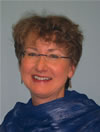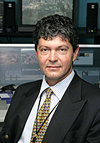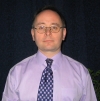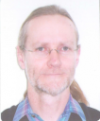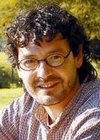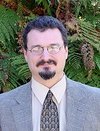EXe International Advisory Group
Overview
The eXe International Advisory Group is a thought-leadership node set up to advise the eXe project on international trends, needs and strategic considerations with regards to:
- Open Education Resources (OERs);
- Collaborative authoring of e-Learning content using social software;
- Interoperability and packaging of open content for different learning management systems;
- Pedagogical customisation and recontextualisation using eXe;
- Future feature enhancements for eXe and Mediawiki software.
Consequently, this advisory group includes leaders from the major FLOSS learning management systems as well as key players in the strategic development of emerging technologies and the open education resource movement. With due recognition to the global challenges associated with achieving the "education for all" strategic objectives, ICTs for development play an important role in this thought leadership group.
Advisory Group Members
Peter Bateman (Kenya)
| Position | Manager - Open Distance and eLearning [(ODeL)] Initiative |
| Affiliation | African Virtual University (AVU) |
| Location | Nairobi, Kenya / Dakar, Senegal |
| Node role | Advisory group member |
| Brief Biography | Peter Bateman holds a Masters Degree in Micro Technology in Education from Reading University (UK), a Bachelor of Education Degree and Diploma of Teaching from the Australian Catholic University, and a Certificate in Online Instruction from Walden University (USA). Born in Australia, he has worked in the Education Sector in Africa for the past 14 years during which time he has developed a particular interest in the use of appropriate technologies to increase access to Higher Education. His primary role at the AVU is to manage a department, which assists universities in the AVU network to enhance their capacity to develop their own Open Distance and eLearning (ODeL) programs as part of the AVU's “In Country Strategy”. The department also coordinates the activities of the Research and Innovation Facility, which are aimed at generating, organizing and disseminating knowledge related to ODeL initiatives in Africa. |
Derek Wenmoth (New Zealand)
| Position | Director, eLearning [(CORE Education)] Limited |
| Affiliation | CORE Education Ltd |
| Location | Christchurch, New Zealand |
| Node role | Advisory group member |
| Brief Biography | Derek is currently the Director of eLearning CORE Education Ltd, a not-for-profit educational research and development organization based in Christchurch, New Zealand. He has a broad background in education, with experience at the primary and secondary school level, and as principal lecturer at the Christchurch College of Education where he established the Primary Open Learning Option (POLO), a distance education programme which offers the Bachelor of Teaching qualification for students anywhere in NZ wishing to train as primary teachers.
Derek’s experience in open, flexible and distance learning includes his role as manager of the eSection at The Correspondence School in Wellington where he led the development of eLearning initiatives as a transition from traditional print-based delivery. He has worked within the Ministry of Education as a senior adviser in eLearning, helping formulate a national eLearning framework that applies across all areas of education, from ECE to tertiary, and currently works on contract to the Ministry working on the implementation plan for this framework. Derek has a keen interest in the development of innovative approaches to learning in the school sector - and is involved with the national coordination of an ICT PD programme that has been operating in New Zealand schools since 1998. He also has an involvement in the development of a national infrastructure to support the emergence of local clusters of schools using video conferencing to overcome problems associated with access to quality educational opportunities for students. |
Sandy Britain (New Zealand)
| Position | Project Lead, eXe 2 |
| Affiliation | Tairawhiti Polytechnic |
| Location | Gisborne, New Zealand |
| Node role | Advisory group member |
| Brief Biography | After completing a PhD in Cognitive Neuroscience at the University of Wales - Bangor in 1996, I took a temporary job as a software developer working with a small team of learning technologists at the University working on a European-funded project to build an Educational Multimedia database. This team, consisting of Oleg Liber, Bill Olivier and myself, went on to form the Centre for Learning Technology(CELT) in 1997 and I remained there working on a variety of research and development projects until 2002. Many of the projects were funded by JISC and included the 1999 and 2004 reports on 'A Framework for the Pedagogical Evaluation of Virtual Learning Environments' authored by myself and Oleg Liber as well as development of the open-source P2P VLE - "Colloquia" and a socio-technical study of organisational change associated with e-learning adoption in a University context (COMANTLE). In the course of this work we used Colloquia as a test platform for a number of the emerging IMS interoperability specifications such as metadata, content packaging and enterprise. In 2004 after spending some time travelling in New Zealand I took up a post at Tairawhiti Polytechnic on the East Cape of North Island as e-learning coordinator with the aim of developing an e-learning centre of excellence at the polytechnic to provide access to education for the high number of remote learners in this rural region of New Zealand. Since arriving in New Zealand I have also been working with the Ministry of Education on strategic development around interoperability specifications and international liaison. |
James Dalziel (Australia)
| Position | Project Lead LAMS |
| Affiliation | Macquarie University & LAMS Foundation |
| Location | Sydney, Australia |
| Node role | Advisory group member |
| Brief Biography | James Dalziel is Professor of Learning Technology and Director of the Macquarie E-Learning Centre Of Excellence (MELCOE) at Macquarie University in Sydney, Australia. James leads a number of projects including: LAMS (Learning Activity Management System), including roles as a Director of the LAMS Foundation and LAMS International Pty Ltd; MAMS (Meta Access Management System), a national identity and access infrastructure project for the Australian higher education sector; RAMP (Research Activityflow and Middleware Priorities), a project investigating open standards authorisation and e-Research workflows, and ASK-OSS (the Australian Service for Knowledge of Open Source Software), a national advisory service on open source issues for the Australia higher education and research sector. Prior to his current roles, James helped lead the COLIS (Collaborative Online Learning and Information Services) project, and was a Lecturer in Psychology at the University of Sydney. |
Jean-Claude Dauphin (UNESCO)
| Position | Project Manager, UNESCO FOSS Portal, ICTs in Education, Science and Culture |
| Affiliation | UNESCO, Information Society Division |
| Location | Paris, France |
| Node role | Advisory group member |
| Brief Biography | Jean-Claude Dauphin works at UNESCO’s Communication & Information Sector in the Information Society Division where he is responsible of the UNESCO’s free and open source software portal launched in 2001. He is in charge of UNESCO’s FOSS activities such as support to the Greenstone digital library system, the FOSS development of CDS/ISIS and IDAMS, organization of FOSS events, and many others. He is also a member of the UNESCO Section for ICTs in Education, Science and Culture whose main interests are: ICTs in Education; ICTs in Science; ICTs in Culture; Community Access; Private partnerships; Information literacy and training. He has a strong interest in free and open source software for education and e-learning standards.
He has a professional qualification in the area of Computer Science and Software Engineering with experience in the development of large-scale software and object-oriented technology. He has been involved in UNESCO software projects aimed at supporting the development of advanced multilingual software distributed free-of-charge around the world for more than two decades (CDS/ISIS database software and IDAMS statistical software)
|
Susan D'Antoni (France)
| Position | Programme Specialist, responsible for the Virtual Institute |
| Affiliation | International Institute for Educational Planning |
| Location | Paris, France |
| Node role | Advisory group member |
| Brief Biography | Susan D’Antoni is responsible for the Virtual Institute of the UNESCO International Institute for Educational Planning. In the context of the Observation function of the Institute, she undertook a study of the policy and planning issues related to the development of the virtual university and e-learning. This work was released in 2003 as a web publication, and followed by a forum series to promote reflection and discussion of the issues raised by the use of Information and Communication Technologies in higher education. Two of the forums have evolved into Communities of Interest – one on Free and Open Source Software, and another on Open Educational Resources with support from the William and Flora Hewlett Foundation.
She began her career heading a project to design and implement a national survey of correspondence education for the Government of Canada in 1997-98, and then joined Ryerson Polytechnical University as Coordinator of the Distance Education Programmes. In 1983, she was seconded to Statistics Canada as Chief of the Projections and Analysis Section of the Education, Culture and Tourism Division. She joined the Association of Universities and Colleges of Canada in 1986 as Director of the newly formed Division of Research, Policy and Planning, responsible for research and analysis, legal support to member institutions, computer support to the Secretariat and a documentation centre. In 1991 she moved to the International Association of Universities in Paris. |
Martin Dougiamas (Australia)
| Position | Founder and Lead Developer, Moodle
Executive Director, Moodle Pty Ltd |
| Location | Perth, Australia |
| Node role | Advisory group member |
| Brief Biography | Martin started Moodle out of frustration with the commercial LMS that he was managing at a University. Martin has postgraduate degrees in both Computer Science and Education, and has applied his knowledge to creating Free, Open Source software specifically designed to encourage community building and social constructionism.
Since its launch in August 2002, Moodle has grown exponentially around the world, encompassing private teaching to Universities in 145 countries and over 70 languages. See the Moodle Statistics for recent adoption figures. Over 200 developers now contribute to the project from around the world, managed by a core team at Moodle Pty Ltd in Perth, Australia. Moodle in the future looks forward to ever-improving compliance with popular standards for packaging and communication allowing greater choice and flexibility for the education community. |
Sally Johnstone (USA)
| Position | Executive Director |
| Affiliation | WCET |
| Location | Colorado, USA |
| Node role | Advisory group member |
| Brief Biography | Sally M. Johnstone is the executive director of WCET, the Cooperative advancing effective use of technology in higher education. Dr. Johnstone’s special areas of expertise include: the effects of the integration of technology on higher education institutions and system organizations, collaborations, quality assurance issues, project development and evaluation, international projects, open educational resources, and generally supporting WCET members in the planning for and implementation of eLearning. Johnstone has authored dozens of articles, book chapters and major reports on distance and distributed learning. She also leads workshops and gives about a dozen invited addresses each year to higher education organizations throughout the world. In addition Johnstone consults regularly with institutions, states, and provinces. She earned her Ph. D. in experimental psychology from the University of North Carolina at Chapel Hill. |
Guillaume Lederer (Belgium)
| Position | Research engineer, Claroline |
| Affiliation | Cerdecam (research center at the ECAM) |
| Location | Bruxelles, Belgium |
| Node role | Research engineer, Claroline development |
| Brief Biography | Participated to the SCORM and IMS compliance of the Claroline platform |
Greg Gay (Canada)
| Position | Project Coordinator, ATutor |
| Affiliation | Adaptive Technology Resource Centre - University of Toronto |
| Location | Toronto, Canada |
| Node role | Advisory group member |
| Brief Biography |
Greg Gay manages Websavvy-access.org, an organization that provides accessibility and usability consultation and design services for Web developers. He has a broad background in e-learning, having designed and taught several Web-based courses, consulted on the design and implementation of many others, lead several research projects looking at accessibility and usability of e-learning environments, and leads the development of ATutor, an open source learning [content] management system designed to accommodate learners using assistive technologies to learn online. Greg's formal background in is cognitive science, with special interests in learning disabilities and adaptive instruction. He has lead the SNOW (snow.utoronto.ca) and LDRC projects (www.ldrc.ca), both of which focus on supporting learners with disabiltiies, and now over sees these projects in a consulting role. |
Andrew Higgins (New Zealand)
| Position | e-Learning Director and Coleader of eXe 2 Development hub in Auckland |
| Affiliation | Auckland University of Technology |
| Location | Auckland, New Zealand |
| Node role | Advisory group member |
| Brief Biography | Dr Higgins worked and taught in outback Australia before undertaking research into the provision of education to students in isolated areas. He has extensive experience in distance education. He worked with the Queensland Government's Education Queensland, both in the Office of the Deputy Director General of Education and later in Office of the Cabinet on secondment. He was the President of the Australian Rural Education Research Association and the President of the Distance Education Association of New Zealand, in which role he led a New Zealand delegation to APEC on Bridging the Digital Divide. He holds a Commissioner's Award for contribution to change in the Queensland Police Service. He is now Director of E Learning at Auckland University of Technology. |
Derek Keats (South Africa)
| Position | Executive Director, Information & Communication Services |
| Affiliation | The University of the Western Cape |
| Location | Cape Town, South Africa |
| Node role | Advisory group member |
| Brief Biography | Prof Derek Keats is Executive Director of Information & Communication Services at the University of the Western Cape where he a mandate to use information and communications technologies to strengthen the University as a national institution of higher education in a global context. He is a biologist with strong interests in using technology to improve teaching-and-learning, to enable higher education in the developing world to respond to the challenges of globalization, and to promote sustainable development while maintaining the quality of the environment. Derek established the International Ocean Institute (IOI) Southern Africa, and was director of it for four years. For three years he was a director of the Cape Information Technology Initiative, a non-profit organization (NGO) focused on developing the ICT cluster and incubating new ICT businesses in the Western Cape. His current research interests include e-Collaboration and lessons for international collaboration from Free Software (open source) and related initiatives; next-generation e-learning systems; Free and Open Source Software and Free/Open content. Derek is most passionate about the potential of ICT-based collaboration to unify expertise within Africa and stimulate development, and has established the African Virtual Open Initiatives and Resources project for this purpose. He has developed a number of initiatives in the fields of educational and environmental informatics, and has published over 75 research papers in biology and in the application of technology. His hobbies include tinkering with his guitars, in-line skating, photography, writing and computer programming. |
Alexander Killing (Switzerland)
| Position | Lead Developer, ILIAS open source |
| Affiliation | International Relations and Security Network (ISN) at Swiss Federal Institute of Technology (ETH Zurich) |
| Location | Zurich, Switzerland |
| Node role | Advisory group member |
| Brief Biography | Enter brief biography here |
Teemu Leinonen (Finland)
| Position | Research group learder |
| Affiliation | Learning Environments research group, Media Lab, UIAH |
| Location | Helsinki, Finland |
| Node role | |
| Brief Biography |
Oleg Liber (United Kingdom)
| Position | Director, CETIS |
| Affiliation | University of Bolton |
| Location | Bolton, United Kingdom |
| Node role | Advisory group member |
| Brief Biography | Professor Oleg Liber is Director of CETIS and Professor of eLearning at the University of Bolton. He was previously Director of the Centre for Learning Technology at the University of Wales Bangor. Professor Liber has been involved in pioneering work in learning technologies for over twenty years, managing a number of projects developing innovative technical systems, including distributed learning networks, multimedia databases, learning management systems, peer-to-peer collaborative learning environments (Colloquia) and tools for implementing eLearning standards (RELOAD). He co-founded the UK IMS Centre in 1998 and its successor, CETIS, which he has steered to its current position of international leadership in the development and implementation of standards-based eLearning. He has published widely on eLearning, including co-authoring (with Sandy Britain) the widely cited JISC report “A Framework for the Pedagogical Evaluation of Virtual Learning Environments”, and is regularly invited to speak at major eLearning events. He has provided consultancy for national government and European agencies on eLearning issues. His research interests are in organisational cybernetics and constructivist learning theory, and how these can inform the development, implementation and embedding of learning technologies. |
Wayne Mackintosh (New Zealand & Canada)
| Position | Education Specialist, Educational Technology: Policy |
| Affiliation | Commonwealth of Learning (COL) |
| Location | Vancouver, Canada |
| Node role | Convener |
| Brief Biography | Wayne Mackintosh was nominated by Sir John Daniel as COL's representative on eXe's International Advisory Group. Previously Wayne was Associate Professor and founding director of the Centre for Flexible and Distance Learning (CFDL) at the University of Auckland, New Zealand.
Wayne has extensive experience in the theory and practice of open and distance learning (ODL). Prior to moving to New Zealand he spent eleven years working at the University of South Africa (UNISA), a distance learning institution and one of the world's mega-universities. At the University of Auckland, he was responsible for developing and leading the university's He has participated in a range of international consultancies and projects including work for COL, the International Monetary Fund, UNESCO and the World Bank. Wayne also serves as a member of the Editorial Board of Open Learning and publishes regularly in the field of flexible and distance learning. Wayne is a committed advocate of free/libre and open source software for education. He was previously the project leader for the eLearning XHTML editor (eXe 1) project, funded by the the Tertiary Education Commission of New Zealand. He has a keen interest in pedagogical innovation for sustainable development. |
Stewart Marshall (West Indies)
| Position | Director, Distance Education Centre |
| Affiliation | The University of the West Indies |
| Location | Barbados, West Indies |
| Node role | Advisory group member |
| Brief Biography | Professor Stewart Marshall is the Director of The University of the West Indies Distance Education Centre (UWIDEC). UWIDEC currently operates in 16 countries and 30 sites throughout the Caribbean. Stewart is also Project Director of the Caribbean Universities Project for Integrated Distance Education (CUPIDE).
Although originally an electrical engineer with the Central Electricity Generating Board in the UK, Stewart has worked in higher education since 1973 in England, Papua New Guinea, Australia, Southern Africa and now in the Caribbean. Just prior to taking up his position at UWI, he was the foundation Dean and a Professor of the Faculty of Informatics and Communication at Central Queensland University in Australia. Stewart’s research interests are in the role of information and communication technologies in distance education and community development, especially in developing countries. He is Chief Editor of the International Journal of Education and Development using Information and Communication Technology (IJEDICT) - an e-journal that provides free and open access to all of its content. |
Pamela McLean (United Kingdom)
| Position | [CAWDnet] convenor |
| Affiliation | CAWD (Registered UK Charity for African Welfare and Development) |
| Location | London |
| Node role | Advisory group member |
| Brief Biography | Pamela McLean became involved with ICT for Development in 2000 when she helped a friend with a few phone calls, emails, and written reports – which happened to relate to ICT4D.
She has become increasingly involved in ICT4D, especially educational aspects. She has been influenced by her own "second chance" at higher education through the Open University, and is an enthusiastic champion of alternative approaches to education and how ICTs can help to enable such opportunities. She's studied ICT4D in theory via the Internet and in practice through "working holidays" with the projects she supports in rural Nigeria. Her background is in teaching. She first got involved in ICTs in education in the 1980s when computers were coming into UK schools. Pam lives in the UK. She is a CAWD volunteer. CAWD is affiliated to "A Ray of Hope UNESCO Youth Ambassador for the Culture of Peace" http://www.unesco.co.uk/ and Pam is the liaison person for Nigeria. Her role in CAWD involves researching and networking (mainly on the Internet) on behalf of various Nigerian projects. At the request of Fantsuam Foundation she is developing and delivering an innovative in-service training project called Teachers Talking (about ICTs), which is designed specifically for teachers in rural Nigeria. Her personal interests relate to education/training (formal and informal) and to enabling collaboration and learning through ICTs. |
Randy Metcalfe (United Kingdom)
| Position | Manager OSS Watch |
| Affiliation | University of Oxford |
| Location | Oxford, United Kingdom |
| Node role | Advisory group member |
| Brief Biography | Randy is manager of OSS Watch, a Joint Information Systems Committee (JISC) national advisory service on free an open source software for UK further and higher education. Randy concentrates his efforts on raising the level of awareness of free and open source fundamentals amongst senior IT decision-makers in UK colleges and universities. He also spends a considerable amount of time exploring aspects of community building prevalent within open source development projects. He has been involved in all aspects of internal and external communications for many years, a role he previously filled for the Humbul Humanities Hub and for a national charity in the UK, the Institute for Citizenship. Before that he was an academic philosopher researching the nature of disagreement in moral theory. |
Kim Tucker (South Africa)
| Position | Senior Researcher |
| Affiliation | Meraka Institute, managed by the CSIR |
| Location | Pretoria, South Africa |
| Node role | Advisory group member |
| Brief Biography | Kim Tucker is currently working as a researcher at the Meraka Institute, managed by the CSIR in South Africa. His main focus is researching the introduction of technology and collaborative learning opportunities, and FLOSS for knowledge sharing and education, but also general advocacy of FLOSS and libre knowledge. His background includes some cognitive psychology a long time ago, computer science lecturing, environmental decision support systems development and other aspects of software development (Java, architecture, patterns, agile methodologies, etc.), and Conservation Biology (MSc). With this as background, he has an interest in knowledge patterns, collaboration and knowledge transfer across disciplines. In the context of OERs he likes to promote the concept of "libre learning" emphasising the freedoms users of OERs (or rather "libre resources :-) should enjoy to permit unrestrained social contructionist learning in the emerging "rip mix and share" culture. |
Werner Westermann (Chile)
| Position | Educational Technology Consultant |
| Affiliation | Director, Educalibre; Consultant, Economic Commission for Latin America and the Caribbean (ECLAC-UN) |
| Location | Santiago, Chile |
| Node role | Advisory group member |
| Brief Biography | History and Geography Teacher, from the Pontificia Universidad Católica de Chile, where he works as investigator on academic research (FONDECYT and FONDEF funds) related to Educational Television. Enters in 1999 to Red Universitaria Nacional REUNA working in R&D projects as a methodologist and instructional designer in FONDEF's Alejandría: Videoteca digital para la educación superior and FDI's Difusión Inalámbrica IP. Enters in 2001, as co-founder, to Ciberanía Consultants where he manages and executes the innovation fund FONTEC project "Integrated System of Goods ands Sertvices for Primary Education".
Since 2004 is a e-learning consultant for the ILPES program, dependant of the Economic Commission for Latin America and the Caribbean (ECLAC-UN). Since 2003, founder and articulator of Educalibre, educational and technological community (future NGO corporation) that promotes free software's techonolgy and collaborative model in education. Activist and supporter in other free software/knowledge communities like Digital Rights, Free Software Center, Free Software Foundation-Latin America, Difusion Center of Free Software. |
David Wiley (USA)
| Position | Director, Center for Open and Sustainable Learning |
| Affiliation | Utah State University |
| Location | Logan, Utah, USA |
| Node role | Advisory group member |
| Brief Biography | Dr. David Wiley is an Associate Professor of Instructional Technology at Utah State University and Director of the Center for Open and Sustainable Learning. He is also currently a Nonresident Fellow of the Center for Internet and Society at Stanford Law School. His previous appointments include an NSF-funded Postdoctoral Fellowship and a Visiting Scholar appointment at the Open University of the Netherlands.
His research focuses on extending educational opportunities to those who have desired them but gone without for some reason. He is an internationally recognized expert in the area of reusable educational resources, or “learning objects,” and has authored of dozens of books, peer-reviewed journal articles, and magazine columns dealing with educationally effective uses of technology. The New York Times, The Economist, the London Financial Times, the Hindu, the Chronicle of Higher Education, and other media outlets have covered his work. He is also the recipient of the National Science Foundation’s prestigious Young Researcher / CAREER award. Dr. Wiley holds a BFA in Music from Marshall University (class of 1997) and a PhD in Instructional Psychology & Technology from Brigham Young University (class of 2000). |
Richard Wyles (New Zealand)
| Position | Project Leader, New Zealand Open Source Virtual Learning Environment project |
| Affiliation | The Open Polytechnic of New Zealand |
| Location | Wellington, New Zealand |
| Node role | Advisory group member |
| Brief Biography | Richard Wyles leads the New Zealand Open Source Virtual Learning Environment Project, developing open source software, and involving a consortium of 20 universities, institutes of technology and polytechnics. Richard views the application of open source technologies as a natural driver for innovation in our education systems and knowledge economies of the future.
In early 2004, Richard led the development of Eduforge, an open access environment designed for the sharing of ideas, research outcomes, open content and open source software for education. Eduforge now hosts 100 projects from throughout the world. Richard is also founder and director of Flexible Learning Network Limited, focused on online learning solutions for education, government and corporate clients. |
Ken Udas (USA)
| Position | Director, SUNY Learning Network (SLN) |
| Affiliation | The State University of New York (SUNY) |
| Location | Albany, New York |
| Node role | Advisory group member |
| Brief Biography | Ken currently directs the SUNY Learning Network at the State University of New York. He recently repatriated from New Zealand where he served as Director of the e-Learning Group at the Open Polytechnic of New Zealand, and before that served the EdNet program in Central Asia as Director of Distance Learning.
While serving in New Zealand, Ken co-founded Eduforge.org and the NZOSVLE project with the support of the NZ Tertiary Education Commission. Among other activities, he is currently supporting the Learning Management Operating System (LMOS) project at SLN. Ken has a deep commitment to creating and supporting low barrier – high access opportunities to facilitate innovation in education and social services. |
Richard Baraniuk (USA)
| Position | Founder, Connexions |
| Affiliations | Connexions, Rice University |
| Location | Houston, Texas |
| Node role | Advisory group member |
| Brief Biography |
Richard Baraniuk is the Victor E. Cameron Professor of Electrical and Computer Engineering at Rice University and founder of Connexions. Connexions is a non-profit start-up launched at Rice University in 1999 that offers a rapidly growing collection of free, open-access educational materials and an open-source software toolkit to help authors publish and collaborate, instructors rapidly build and share custom courses, and students explore the links among concepts, courses, and disciplines. Connexions is internationally focused, interdisciplinary, and grassroots organized. For his research in the area of Digital Signal Processing, Dr. Baraniuk has received national young investigator awards from the National Science Foundation and the Office of Naval Research, the Rosenbaum Fellowship from the Isaac Newton Institute of Cambridge University, and the ECE Young Alumni Achievement Award from the University of Illinois. He was elected a Fellow of the IEEE in 2001 and a Plus Member of AAA in 2004. For his teaching, he has received the George R. Brown Award for Superior Teaching at Rice twice and the C. Holmes MacDonald National Outstanding Teaching Award from Eta Kappa Nu. |
Jun Iwata (Japan)
| Position | Director, Multimedia Education Committee |
| Affiliations | Department of Humanities,Matsue National College of Technology |
| Location | Matsue, Japan |
| Node role | Advisory group member |
| Brief Biography |
Jun Iwata is an associate professor at Department of Humanities, Matsue National College of Technology.[1]. He earned BA at Shimane University, Japan and MA degree in English Language Teaching at University of Technology, Sydney. He currently teaches English as an associate professor at Matsue National College of Technology, Japan. His research interests include TEFL and CALL as well as American Literature. |








